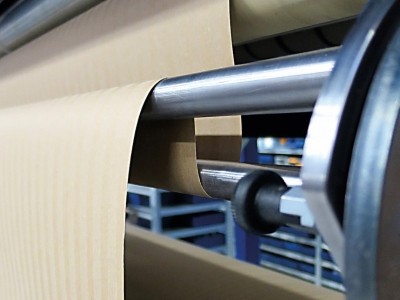Nestlé installs cost-cutting pallet labelling system
using UHF RFID tags that should help the company make significant
supply chain savings.
After full analysis and site surveys of Nestlé's distribution centres in Lüdinghausen and Rangsdorf, Germany, Sato, in collaboration with UPM Rafsec, a producer of RFID tags, successfully designed and installed a solution meeting Nestlé's UHF RFID (radio frequency identification) labelling requirements.
The installation should help Nestlé meet traceability requirements that are now being demanded by many top retailers such as Germany's Metro Group, and also lead to cost efficiency savings.
Nestlé is at the cutting edge of using technology in order to improve efficiencies. Last year the Swiss giant selected Quadrem eMarketplace as the partner for its global eRequisitioning programme, part of an enterprise-wide initiative Nestle is implementing to standardise and streamline e-procurement processes.
Quadrem is providing Nestlé solutions that support global eRequisitioning of services and indirect materials, including development and ongoing support of electronic supplier catalogues, supplier on-boarding services and a Web- based XML platform supporting requisitioning transactions that will be integrated with Nestlé's enterprise resource planning systems (ERP).
The installation of Sato UHF RFID tags is therefore part of a discernible trend. Nestlé is participating in Metro Group's Future Store project, and now ahs the capacity to automatically label pallets of goods with fully functional UHF RFID tags.
The Future Store in Rheinberg is a project of the Metro Group Future Store Initiative. In the Future Store, Metro Group, together with 45 partners from the IT, consumer goods and service industry, tests the application and interaction of various new technologies for retailing under real conditions.
The objective of the project is the development of benefit-focused solutions that lead to advantages for the consumer and the retail and consumer goods industries alike.
"Sato is delighted about this partnership with Nestlé and UPM Rafsec," said Andreas Kolb, RFID Business Development Manager from Sato. "Sato has been participating in Metro's Future Store initiative since the beginning, which has allowed us to gain the valuable application knowledge that is necessary for developing the automated (print and apply) pallet labelling solution based on Sato's well-established S-type print engines using UHF RFID tags."
The SATO automatic pallet labelling solution is supplied with the UPM Rafsec "Flag Tag", allowing tagging of all pallets with just one type of tag. This solution functions for all potential shipping label applications in the market today.
The new automatic pallet-labelling unit is due to first go into operation at the Nestlé distribution centre in Rangsdorf in January 2005.
RFID technology is being driven hard by retailers such as Metro, which see RFID as the natural replacement of industry's current bar code-based tracking systems, allowing companies to automatically track inventory throughout an entire supply chain. RFID automatic data collection typically does not require line of sight or manual scanning as do most bar code-based systems.
For example, information from RFID-tagged cases on a pallet can be read automatically using fixed, mobile or handheld readers rather than requiring individual bar code scanning.
Sato is a public listed company in Japan and has worldwide offices in United States, Belgium, Germany, United Kingdom, Poland, Singapore, Malaysia, Thailand and China. Sato reported revenues of US$528 million in 2003.
Nestlé, the world's largest food and beverage company, employs 230,000 people. The company has factories or operations in almost every country in the world.





